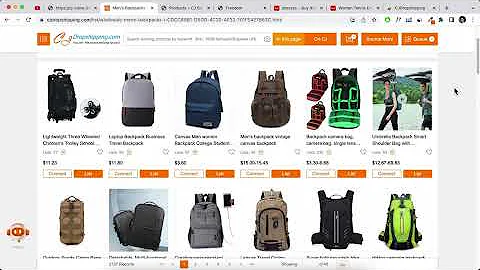Unleash the Power of SEO to Dominate Your Market Niche!
Table of Contents:
1. Introduction
- What is Search Engine Optimization?
- The Importance of SEO
- Pros and Cons of SEO
4.1 Pros
4.1.1 Increased Visibility and Web Traffic
4.1.2 Long-Term Results
4.1.3 Cost-Effective
4.2 Cons
4.2.1 Time-Consuming
4.2.2 Constant Updates Required
4.2.3 Initial Investment Needed
- On-Page SEO
5.1 Optimizing Heading Tags (H1, H2, etc.)
5.2 Using Relevant Keywords
5.3 Creating Quality Content
5.4 Optimizing URL Structure
- Off-Page SEO
6.1 Importance of Backlinks
6.2 Building a Strong Backlink Profile
6.3 Social Media Marketing
6.4 Guest Blogging and Influencer Outreach
- Keyword Research
7.1 Understanding User Intent
7.2 Tools for Keyword Research
7.3 Choosing the Right Keywords for Your Business
- Creating a Sitemap
8.1 Importance of a Sitemap
8.2 Setting Up and Submitting a Sitemap
- Utilizing Google Search Console
9.1 Understanding Google's Perspective
9.2 Tips for Optimizing Your Website with Google Search Console
- SEO for Other Search Engines
10.1 Optimizing for Bing
10.2 Optimizing for Yahoo
- Getting Started with SEO
- Conclusion
Introduction
In this article, we will dive into the world of Search Engine Optimization (SEO) and explore its importance in today's digital landscape. We will discuss the benefits and drawbacks of SEO and provide a step-by-step guide on how to optimize your website for search engines. Whether you are new to SEO or looking to improve your existing strategies, this article will serve as a comprehensive resource to help you achieve online success.
What is Search Engine Optimization?
Search Engine Optimization, or SEO, refers to the process of optimizing a website to rank higher in organic (non-paid) search engine results. It involves various techniques and strategies aimed at improving a website's visibility and attracting more relevant organic traffic. SEO encompasses both on-page and off-page optimization, including keyword research, content creation, technical optimizations, and acquiring high-quality backlinks.
The Importance of SEO
SEO forms the foundation of all online marketing efforts. It is a cost-effective way to increase brand visibility, attract targeted traffic, and establish credibility in the digital space. With 97% of customers relying on search engines to find products and services, neglecting SEO can result in missed opportunities and losing out to competitors. By implementing effective SEO strategies, businesses can gain a competitive edge and achieve long-term success.
Pros and Cons of SEO
4.1 Pros
4.1.1 Increased Visibility and Web Traffic
SEO helps websites rank higher in search engine results, making them more visible to potential customers. This increased visibility leads to higher web traffic and greater brand exposure.
4.1.2 Long-Term Results
Unlike paid advertising, the results of SEO are long-lasting. Once a website achieves a good ranking, it can continue to attract organic traffic without ongoing investment.
4.1.3 Cost-Effective
Compared to other marketing strategies, SEO is relatively cost-effective. It offers a higher return on investment (ROI) as it targets users actively searching for specific products or services.
4.2 Cons
4.2.1 Time-Consuming
SEO requires consistent effort and time to see significant results. It involves thorough research, content creation, technical optimizations, and continuous monitoring.
4.2.2 Constant Updates Required
Search engine algorithms are constantly evolving, and SEO strategies need to adapt accordingly. Staying updated with the latest trends and best practices is essential to maintain rankings.
4.2.3 Initial Investment Needed
While SEO is cost-effective in the long run, it still requires an initial investment to implement necessary optimizations, conduct keyword research, and create quality content.
On-Page SEO
5.1 Optimizing Heading Tags (H1, H2, etc.)
Heading tags play a crucial role in signaling the structure of a webpage to search engines. Optimizing heading tags by including relevant keywords can improve the visibility and readability of your content.
5.2 Using Relevant Keywords
Keyword research is a vital part of on-page optimization. By identifying relevant keywords that align with user intent, you can optimize your content to target specific search queries and attract more organic traffic.
5.3 Creating Quality Content
Quality content is a key driver of SEO success. By creating informative, engaging, and unique content, you can attract natural backlinks, increase user engagement, and establish yourself as an authority in your industry.
5.4 Optimizing URL Structure
A well-optimized URL structure can improve the user experience, make it easier for search engines to understand the content of your webpages, and contribute to higher search rankings. Including relevant keywords in your URLs can also enhance their visibility in search results.
[Continue writing the article based on the provided Table of Contents]


















